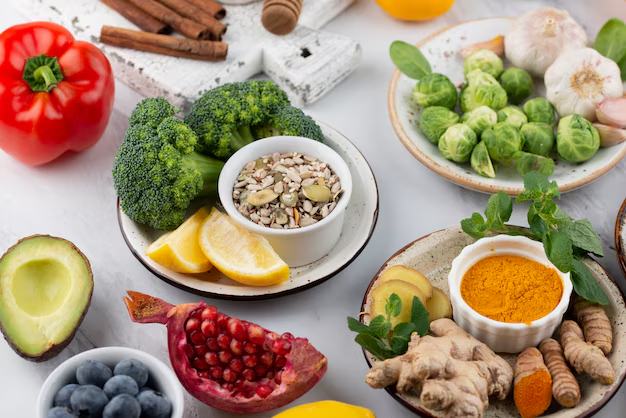Your Guide to How To Lower Hypertension Naturally
What You Get:
Free Guide
Free, helpful information about HyperTension FAQ and related How To Lower Hypertension Naturally topics.
Helpful Information
Get clear and easy-to-understand details about How To Lower Hypertension Naturally topics and resources.
Personalized Offers
Answer a few optional questions to receive offers or information related to HyperTension FAQ. The survey is optional and not required to access your free guide.
Looking for Natural Ways to Lower Hypertension? Here’s Your Guide!
Hypertension, commonly known as high blood pressure, affects millions of people globally and is a significant risk factor for heart disease and stroke. While medication is often necessary, there are numerous natural remedies that can effectively help manage hypertension without medication. Here’s a comprehensive guide on how to lower hypertension naturally, so you can take charge of your health.
Embrace a Heart-Healthy Diet
One of the paramount natural strategies to combat high blood pressure is improving your diet. Here are some essential dietary changes:
- Adopt the DASH Diet: The Dietary Approaches to Stop Hypertension (DASH) diet emphasizes fruits, vegetables, whole grains, and lean proteins, all of which are critical for lowering blood pressure.
- Reduce Sodium Intake: Aim to consume less than 2,300mg of sodium per day. Opt for natural flavorings like herbs and spices instead of salt.
- Increase Potassium: Foods such as bananas, sweet potatoes, and spinach are rich in potassium, which helps balance sodium levels and reduces blood pressure.
Regular Physical Activity
Exercise is a cornerstone of maintaining healthy blood pressure levels. Engaging in regular physical activity makes the heart stronger and more efficient at pumping blood, which lowers the pressure in your arteries.
- Target at Least 150 Minutes Weekly: Aim for at least 30 minutes of moderate aerobic exercise, like brisk walking or cycling, five days a week.
- Incorporate Strength Training: Adding resistance exercises two days a week boosts your metabolism and improves heart health.
Maintain a Healthy Weight
Carrying extra weight means your heart has to work harder, which raises blood pressure. Keeping your weight in check can have a significant impact on your overall health.
- Calculate Your BMI: A Body Mass Index (BMI) in the range of 18.5-24.9 is considered healthy.
- Set Achievable Goals: Aiming to lose even 5-10% of your body weight can help lower blood pressure effectively.
Manage Stress
Chronic stress contributes to high blood pressure, so managing it is essential for long-term health.
- Practice Relaxation Techniques: Activities like yoga, meditation, and deep-breathing exercises can drastically reduce stress.
- Prioritize Sleep: Ensure 7-9 hours of quality sleep per night to support mood and overall heart health.
Limit Alcohol and Caffeine
Moderation is key when it comes to substances like alcohol and caffeine.
- Drink Responsibly: Limit alcohol to one drink per day for women and two for men to see positive effects on blood pressure.
- Monitor Caffeine Intake: Some people are more sensitive to caffeine. Observe how it affects your blood pressure and cut back if necessary.
Say No to Smoking
Smoking is a significant risk factor for hypertension. Quitting smoking not only improves blood pressure levels but also reduces the risk of heart disease.
When seeking to actively manage your blood pressure through lifestyle changes, it might also be prudent to explore financial assistance options for managing healthcare costs. Programs and solutions may be available to ease the financial burden, offering peace of mind as you pursue better health.
Helpful Financial and Educational Resources
- 📉 Government Aid Programs: Investigate programs like Medicaid or Medicare for coverage of medical expenses related to hypertension treatment.
- 📊 Debt Relief Options: Consider speaking with a financial advisor about consolidating medical debt or exploring payment plans.
- 💳 Credit Card Solutions: Look for credit cards with low interest rates for managing healthcare expenses more effectively.
- 🎓 Educational Grants: Search for grants or scholarships that focus on health education, which can contribute to informed health decisions and potentially reduce medical costs over time.
Lowering hypertension requires a holistic approach, sharply focusing on natural methods, lifestyle adjustments, and comprehensive support mechanisms. By integrating these strategies into your daily routine, you're taking a powerful step towards a healthier heart and life.
What You Get:
Free HyperTension FAQ Guide
Free, helpful information about How To Lower Hypertension Naturally and related resources.

Helpful Information
Get clear, easy-to-understand details about How To Lower Hypertension Naturally topics.

Optional Personalized Offers
Answer a few optional questions to see offers or information related to HyperTension FAQ. Participation is not required to get your free guide.


Discover More
- a 66 Year Old Female With a History Of Hypertension
- Are Eggs Bad For Hypertension
- Are Eggs Good For Hypertension
- Are Endocrine Disorders Causing Hypertension Rare
- Can Adderall Cause Hypertension
- Can Alcohol Cause Hypertension
- Can Allergies Cause Hypertension
- Can Anemci People Get Hypertension
- Can Anemia Cause Hypertension
- Can Antibiotics Cause Hypertension
